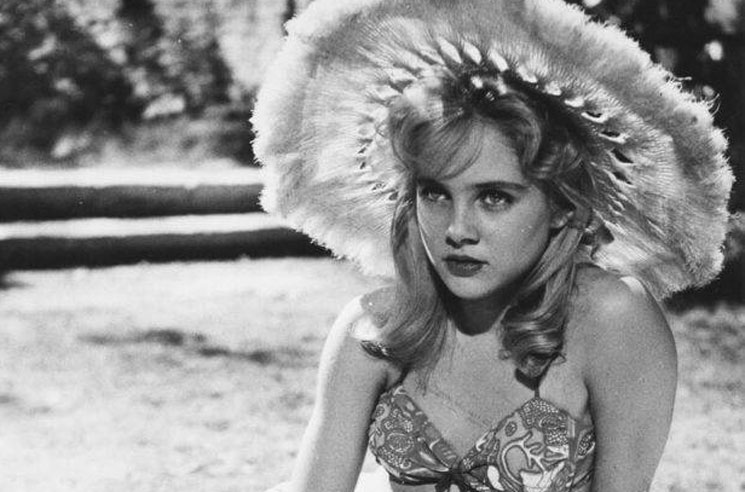Sue Lyon, who has died
aged 73, was an American actress who entered cinema folklore aged 14 when she
beat out a reported 800 applicants for the role of Dolores Haze, the adolescent
focus of the middle-aged Humbert Humbert’s attentions, in Stanley Kubrick’s 1962
adaptation of Vladimir Nabokov’s novel Lolita.
Lyon’s performance as a
flirty student on a 1959 episode of The Loretta Young Show caught the
eye of a director looking to skirt the book’s paedophilic implications – and ease
a hot-potato project past the censors – by casting a Lolita who might pass as
physically older than the 12-year-old conceived in prose by Nabokov. Lyon’s
Lolita proved central to the film’s queasy, provocative tone, retaining a
knowing innocence in the face of her onscreen suitors’ frantic projections.
Though technically too
young to see the X-rated feature when it opened, Lyon soon became the postergirl
for a new, permissive American cinema, appearing on billboards in an indelible
pose – heart-shaped sunglasses lowered, strawberry lollipop suspended between
open lips. Few at the time noticed this image was but another projection, an ad
man’s fantasy found nowhere within the film itself.
The performance earned
her the Promising Female Newcomer prize at the 1963 Golden Globes, a brief pop career
(lending her vocals to Nelson Riddle’s cash-in composition “Lolita Ya-Ya”) and a
gift of two pink Persian kittens care of onscreen mother Shelley Winters. Even
the generally acid gossip columnist Hedda Hopper was impressed, remarking “Sue
Lyon is the arch prototype of an instant star”.
Yet Lyon subsequently
found roles harder to come by, struggling with manic depression, a turbulent
love life, and a not unjustified sense that Hollywood abandoned her once the
nymphet image no longer matched with reality. In a 1967 interview, she was
already facing up to the challenges of sustaining a career in a town where such
images are paramount: “To be pretty and to stay pretty are two different
things. You can’t take anything for granted, and it’s foolish to think you
can.”
She was born Suellyn Lyon
in Davenport, Iowa on July 10, 1946, the youngest of the impoverished James and
Sue Karr Lyon’s five children. Her father died when she was ten months old,
leaving her mother, a hospital administrator, to raise the family
singlehandedly. In the late 1950s, the Lyons relocated to L.A. in the hope that
young Sue’s apple-cheeked, all-American looks might support them. She modelled
for the JC Penney catalogue, and in 1960 was named “Miss Smile” by L.A. County dentists.
After Lolita, she
was notable (and very shrewdly cast) as the lissom teen tempting Richard Burton’s
priest in John Huston’s film of The Night of the Iguana (1964), landed
her biggest payday in John Ford’s unusual, female-led drama 7 Women
(1966), and held her own opposite George C. Scott in The Flim-Flam Man
(1967).
She lost out to Faye
Dunaway during casting for Bonnie and Clyde (1967), but landed roles in
the Sinatra vehicle Tony Rome (1967), the TV remake of Arsenic and
Old Lace (1969) and as the stunt biker’s wife in the biopic Evil Knievel
(1971).
A retreat into cocktail
waitressing followed once the roles dried up, though she appeared on TV in Police
Story (1978) and Fantasy Island (1978). Her final screen credit came
as a newswoman in the lively Jaws rip-off Alligator (1980).
She married five times:
to the Blade Runner screenwriter Hampton Fancher; to the photographer and
football coach Roland Harrison; to Gary “Cotton” Adamson, then an inmate at
Colorado State Penitentiary serving time for robbery-murder; to Edward Weathers;
and to the radio engineer Richard Rudman. She is survived by Nona Harrison
Gomez, a daughter from her second marriage.
Sue Lyon, born July 10, 1946, died December 26, 2019.

No comments:
Post a Comment